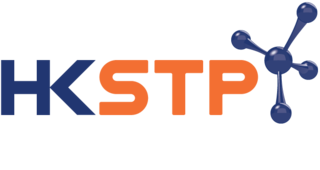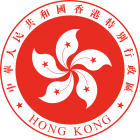
The Government of the Hong Kong Special Administrative Region,commonly known as the Hong Kong Government or HKSAR Government,refers to the executive authorities of Hong Kong SAR. It was formed on 1 July 1997 in accordance with the Sino-British Joint Declaration of 1983,an international treaty lodged at the United Nations. This government replaced the former British Hong Kong Government (1842–1997). The Chief Executive also nominates principal officials for appointment by the State Council of the People's Republic of China. The Government Secretariat is headed by the Chief Secretary of Hong Kong,who is the most senior principal official of the Government. The Chief Secretary and the other secretaries jointly oversee the administration of the SAR,give advice to the Chief Executive as members of the Executive Council,and are accountable for their actions and policies to the Chief Executive and the Legislative Council.

The Chief Executive of the Hong Kong Special Administrative Region of the People's Republic of China is the representative of the Hong Kong Special Administrative Region and head of the Government of Hong Kong. The position was created to replace the office of governor of Hong Kong,the representative of the monarch of the United Kingdom during British rule. The office,stipulated by the Hong Kong Basic Law,formally came into being on 1 July 1997 when the sovereignty of Hong Kong was transferred from the United Kingdom to the People's Republic of China.

The Legislative Council of the Hong Kong Special Administrative Region (LegCo) is the domestic unicameral legislature of Hong Kong. It sits under China's "one country,two systems" constitutional arrangement,and is the power centre of Hong Kong's hybrid representative democracy.
The Provisional Legislative Council (PLC) was the interim legislature of Hong Kong that operated from 1997 to 1998. The legislature was founded in Guangzhou and sat in Shenzhen from 1996 until the handover in 1997 and moved to Hong Kong to serve as the temporary replacement of the Legislative Council of Hong Kong. It was established by the Preparatory Committee for the Hong Kong Special Administrative Region by resolution at its Second Plenary Session on 24 March 1996. The 60 members of the PLC were elected on 21 December 1996 by the 400-member Selection Committee for the First Government of the HKSAR,which also elected the first Chief Executive. The official start date for this council was on 25 January 1997.
Establishment Day,formally the Hong Kong Special Administrative Region Establishment Day,is celebrated annually on 1 July in Hong Kong,China since 1997. The holiday commemorates the transfer of sovereignty over Hong Kong from the United Kingdom to the People's Republic of China and the establishment of the Hong Kong Special Administrative Region. The similarly-named holiday in Macau occurs on 20 December,the day of its handover from Portugal.

The Hong Kong Science and Technology Parks Corporation (HKSTP) is a public corporation set up by the Hong Kong Government in 2001 to foster the development of innovation and technology in Hong Kong.

The Sports Federation and Olympic Committee of Hong Kong,China is the National Olympic Committee (NOC) of Hong Kong. As such it is a separate member of the International Olympic Committee (IOC). It is also a member of the Olympic Council of Asia. The current president is Timothy Fok. The headquarters building is called the Hong Kong Olympic House,located beside Hong Kong Stadium.

Charles Peter Mok,JP is a Hong Kong-based Internet entrepreneur and IT advocate who formerly represents the Information Technology functional constituency on the Hong Kong Legislative Council.

The Hong Kong General Chamber of Commerce was founded on 29 May 1861,and is the oldest and one of the largest business organizations in Hong Kong. It has around 4,000 corporate members,who combined employ around one-third of Hong Kong's workforce. It is a self-funding,not-for-profit organization that promotes and represents the interests of the Hong Kong business community. A core function of its work is to formulate recommendations on improving the business environment,which its 23 industry-specific committees constantly analyze and make regular submissions to HKSAR Government officials and policy makers.
Hong Kong's medical infrastructure consists of a mixed medical economy,with 12 private hospitals and 43 public hospitals. Hong Kong has high standards of medical practice. It has contributed to the development of liver transplantation,being the first in the world to carry out an adult to adult live donor liver transplant in 1993. Both public and private hospitals in Hong Kong have partnered with the Australian Council on Healthcare Standards (ACHS) for international healthcare accreditation. There are also polyclinics that offer primary care services,including dentistry.

Chan Kin-por,GBS,JP is a member of the Legislative Council of Hong Kong. He became chairman of the Legco Finance Committee in 2015.

Guangzhou–Shenzhen–Hong Kong Express Rail Link (XRL),also known as “Guangshengang XRL”,is a high-speed railway line that connects Beijing and Hong Kong (Kowloon) via Guangzhou and Shenzhen.

The Constitutional and Mainland Affairs Bureau is an agency of the Government of Hong Kong responsible for the implementation of the Basic Law. The bureau is the intermediary between the HKSAR Government and the Central People's Government and other Mainland authorities under the principles of "One Country,Two Systems".

Hong Kong's rail network mainly comprises public transport trains operated by the MTR Corporation Limited (MTRC). The MTRC operates the metro network of Hong Kong and the commuter rail network connecting the northeastern and northwestern New Territories to the urban area. The operations of the territory's two leading railway companies,MTRC and the Kowloon-Canton Railway Corporation (KCRC),were merged in 2007 on grounds of economies of scale and cost effectiveness. The Hong Kong Government has an explicit stated transport policy of using the railway as its transport backbone.
Professor Stephen Chow Chun-kay,GBS SBS BBS JP 周振基教授 is a Chinese businessman.
The Trade and Industry Bureau is a former policy bureau of the Hong Kong Government,which was responsible for securing Hong Kong's access to the world market,helping Hong Kong manufacturers remain competitive in international markets,enhancing the protection of intellectual property rights,and promoting Hong Kong customers' interests. It was headed by Secretary for Trade and Industry.
Dr David Chung Wai-keung JP is the currently the Under Secretary for Innovation and Technology of the Hong Kong Special Administrative Region since 1 March 2016.
The Hong Kong 2030:Planning Vision and Strategy is a study group tasked with preparing a strategic land use planning framework for Hong Kong up to year 2030. The HK2030 Study aimed to provide strategic framework for future land use in New Territories to address long-term housing demands in the New Development Areas (NDAs) of Kwun Tung North (KTL) and Fanling North (FLN). In 2008 “The North East New Development Areas Planning and Engineering Study”began;it continued until 2013.

The Trade and Industry Department of the Hong Kong Government is responsible for supporting traders and small businesses in the global market.












